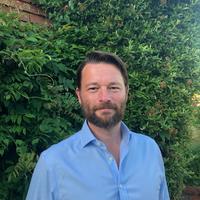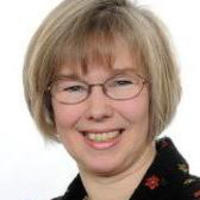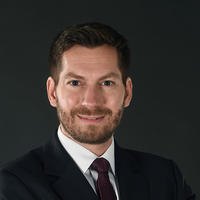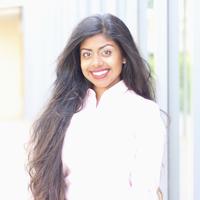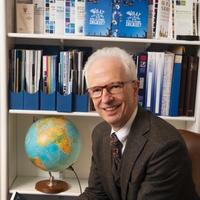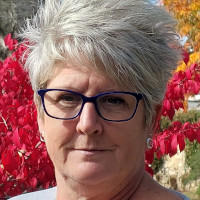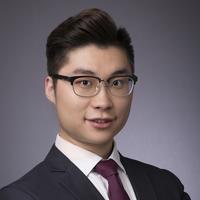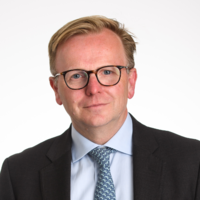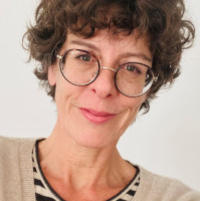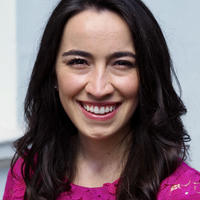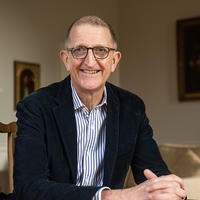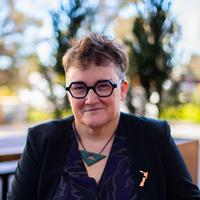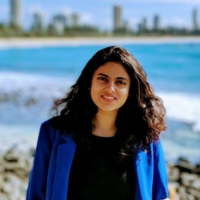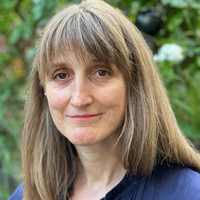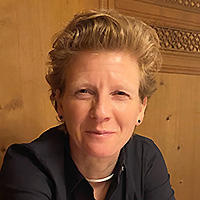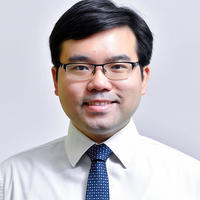The first meeting of 2023 saw Board members logging in from as far away as India and Munich along with strong in-person attendance in the Board Room at the Maths Institute. Board members heard an update on fundraising from Liesl Elder, the University’s Chief Development Officer. She reported that 2021-22 represented the University’s second-best year in fundraising (after 2018-19) with new cash gifts and pledges totalling over £249M and total gifts raised across the entire collegiate University reaching over £500m. She went on to report on progress made in clarifying the themes for the University’s next campaign and ways in which the Alumni Board specifically might be able to support the campaign. Her presentation was followed by a lively and informative overview by Professor William Whyte on the progress made on the Stephen A. Schwarzman Centre for the Humanities (www.schwarzmancentre.ox.ac.uk). The Director of Alumni Relations updated the Board on the robust set of upcoming alumni events associated with introducing the new V-C to the community. The Board heard a report from the Working Group looking at expanding the current Distinguished Friend of Oxford Awards programme and made some thoughtful recommendations to further enhance it. The Board went on to discuss how best to deploy the funds at its disposal, agreeing to support a project to assess the potential for greater impact within the current alumni relations model with an eye to increasing engagement.
Board members gathered both in person and on-line for the September 2022 Meeting. After welcoming the newest ex officio Board member, Geoffrey Cheng, the new President of Oxford10, the Board heard a brief update from Christine Fairchild, Director of Alumni Relations on recent activity. Dr Nick Brown then provided a report from Conference of Colleges including a new initiative to raise funds to support graduate students from the Ukraine. Out of 800+ applications, 26 scholarships were offered to outstanding scholars. The University is keen to expand this initiative to include refugees from other conflict-ridden areas and there was some discussion about how local alumni groups might participate. The Board went on to discuss other items including the financial pressures currently facing the University (the rising cost of energy, the pension scheme, student funding). The discussion then returned to how the Board might best support the Alumni Office to engage the wider alumni community; whether additional resources are needed to augment the Office’s resources. The Board confirmed the creation of two working groups: one to review how best to deploy the funds at its disposal so as to have the greatest impact, and another to look at the creation of an alumni recognition scheme. At the conclusion of the Board meeting, Board members joined network volunteers for lunch prior to the kick-off of the Meeting Minds weekend.
Board members were delighted to welcome the Vice Chancellor, Professor Dame Louise Richardson, to their meeting held at Keble College. She reflected on the following themes: the results of the Research Excellence Framework (REF), the University’s response to the pandemic and its aftermath, the development of the Oxford vaccine, examples of exciting new research and the success of recent spin-outs. After her presentation, the Board entered into a lively Q & A covering access and outreach, the inherent challenges associated with leading a collegiate university, the impact of Brexit and of COVID and the challenges of maintaining the University’s position as no. 1 in various rankings. After the VC departed, David Gann, PVC for Development and External Affairs provided an update on the development strategy and the role of alumni in realising that strategy. Discussion turned to how the Alumni Office might be strengthened to take alumni engagement to a new level. In addition, the Board discussed the role of the Board and its mission and vision for the alumni community. Finally, the Board heard an update from the Director of Alumni Relations on the Office’s goals and current challenges. The meeting concluded with the ratification of a new alumni group in Basel, Switzerland.
The Hilary Term Board meeting commenced with a presentation from James Colman, Director of Public Affairs Directorate. He shared details of the University’s publicity campaign around its work on the COVID-19 vaccine to give Board members a clearer understanding of the how such a campaign helps to burnish the image of the University. Professor Chas Bountra, Pro-Vice Chancellor for Innovation, then shared some of the University’s recent achievements and ongoing challenges. Dr Nick Brown, reporting on behalf of Conference of Colleges, reported on the success of the Black Academic Futures programme and the appointment of the first jointly funded post in development providing four colleges with access to expert advice on legacy giving.
In the second half of the meeting, Board members were divided into small groups to discuss how the Board might better serve the collegiate University and be seen as a robust resource. The Director of Alumni Relations then described the remit of two Board Working Groups; one addressing Targeted Alumni Engagement and the other to support the work of the Networks team. Board members were encouraged to volunteer for one or both group. As time was running short, the meeting ended with a promise to address the Board’s funds at the next meeting.
Prof David Gann, Oxford’s Pro-Vice-Chancellor for Development and External Affairs opened the meeting with his invaluable update on recent activities across the University. In particular, he touched on the University’s ongoing response to managing through the COVID crisis, contributions to the upcoming COP26 conference and the current state of the development strategy. The session ended with a robust Q & A between Board members and Prof Gann, in which he added further clarity about how the Board might be able to support various activities. The Director of Alumni Relations then presented the 2021/22 KPIs for the Alumni Office and again, discussion was had about the ways in which the Board might support the delivery of these. That discussion led seamlessly into a presentation by the Alumni Board Chair that focused specifically on how the Board has developed over the last year and its objectives around supporting alumni engagement and alumni networks. There was a call for more specificity around how Board members can contribute to specific initiatives and a desire for real clarity around Board roles and expectations. The Board divided themselves into three discussion groups in which they addressed whether they felt the Board (and the alumni community) should have a mission statement, how to improve the perceived and actual effectiveness of the Board and how to increase its engagement across the University. Finally, the meeting concluded with a discussion of how the Alumni Office is funded, where the Board’s funds come into play and how best to reset the perception that the Alumni Office is a cost centre rather than an integral part of ensuring the long-term health of the University.
The Board met via Zoom and began by hearing from Pro-Vice-Chancellor David Gann who shared recent news from the University before diving into a deeper discussion about the University’s emerging development strategy with Chief Development Officer Liesl Elder. PVC Gann further elaborated on the projected themes of the development plan and explained that work was underway to identify academic champions for each. Whilst specific monetary targets have not been confirmed, it is understood that these would be large-scale projects needing transformative gifts. At the same time, Prof Gann acknowledged the importance of building support amongst the alumni community for these endeavours and hopes to increase regular giving. After a fulsome discussion, the Board heard from Dr Nick Brown about the work of Conference of Colleges and specifically, efforts to raise money for an academic futures scholarship programme to fund post-graduate studies. Board members were then divided up into smaller discussion groups to share and collect feedback on the development strategy. That feedback was then channelled back to the PVC and Liesl Elder. The Board went on to discuss ways in which the Board might better improve its visibility with alumni and with internal colleagues as well as ensuring that it’s work has impact. This led to reports from the two Working Group chairs who are addressing Alumni Engagement and Support for Alumni Networks. Both groups have provided the Alumni Office with important advice and guidance and it was agreed that the work of the groups should continue. Discussion progressed to the funds currently at the Board’s disposal and there was a unanimous call for more clarity on how the Office is funded and how the Board’s funds have been deployed to support the work of the Alumni Office. Finally, the Board saluted the departure of two highly valued Board members: Chris Lowe (Brasenose) and James Khan (Kellogg). They each brought a dedication to service and highly valued skills that added tremendously to each discussion. We are enormously grateful for their commitment to the Board, the University, and its alumni community.
Due to Lockdown, the Board convened again via Zoom, noting with sadness the untimely passing of fellow Board member, Professor Angus Hawkins. The Chair went on to invite an update from Dr Nick Brown as a member of Conference of Colleges. He provided insights into how the colleges were coping in light of the latest Lockdown and also highlighted the University’s Environmental Sustainability Strategy that is taking shape. The Chair then welcomed David Gann CBE as the new Pro-Vice-Chancellor for Development and External Affairs. Prof Gann described his focus on informing and engaging the alumni community as institutional ambassadors along with encouraging more digital outreach to keep alumni engaged. Liesl Elder, Chief Development Officer provided an update on recent fundraising successes along with plans to develop the framework for the next major fundraising effort. The Board then gathered in smaller breakout groups to further discuss what they heard and to formulate feedback for Professor Gann and Ms Elder. After reconvening and sharing their input, the Board heard a report from the Chair on recent activity by the leadership team to raise the visibility of the Board. The two Working Groups (Engagement and Alumni Networks) each provided updates on their activity and the Board went on to approve proposals for two new alumni groups, one in Equador and the other a special-interest group for PPE alumni. The Director of Alumni Relations went on to update the Board on the issue of Associate status, explaining that the proposal to raise the threshold to 12 weeks now needs to go to the Committee for Development and Alumni Relations, and ultimately Council for ratification. Finally, after receiving a report on Board funds, the meeting concluded.
The Board convened via Zoom and welcomed 4 new members, Christian Brodie, Luis Gomes, Marco Janezic and Chantal Sathi, along with the new leadership team: James Dancer (Chair), Judith Tew (Deputy Chair) and Maureen O’Neill (Treasurer). Robert Easton joined the meeting and provided an update on the impact of COVID on the University. As Dr Easton will be stepping down from his role in November, the Board offered their sincere thanks for his support and leadership. After an update from Prof Nick Brown in his capacity as member of Conference of Colleges, the Board moved into a presentation from the incoming leadership team on the proposed new strategy for the Board. The Chair offered an outline of a new mission statement, suggestions around making the Board more effective and raising its visibility as a strategic partner across the collegiate university. In particular, the leadership team identified 5 areas where the Board might focus their attention: alumni groups, alumni engagement, support for other entities across the University, and infrastructure (systems, data, etc). These were then prioritised into 2 Working Groups, Alumni Engagement and Alumni Networks. In addition, the Board agreed that the following measures would be taken to enhance its work; more frequent communication and informal meetings in-between Board meetings, clear objectives and metrics aligned both with the strategic objectives of the Alumni Office and ultimately the University. Finally, the Board reviewed two applications for official group status, one from alumni in Shenzhen and one from Guangzhou. Both were approved.
The Board meeting (hosted on Zoom) commenced with the announcement by Chairman, Nick Segal that upon his retirement, James Dancer (Keble, 1994) would be taking over as Chair and Judith Tew (LMH, 1980) as Deputy Chair as of September 2020. Nick went on to thank Helen Wright, Deputy Chair (Lincoln, 1988) and Jackie Ranawake King (St Peter’s, 1988) for their steadfast service to the Board throughout their terms. Robert Easton, Pro-Vice-Chancellor for Development and External Affairs provided an update on the University and specifically the impact of the COVID crisis and Dr Nick Brown provided the perspective from Conference of Colleges. The Board then went on to discuss the proposal to review the distinction between Alumni and Associate status. The Board agreed with the proposal to raise the threshold for Associate status from 4 days to 12 weeks as of Michaelmas Term 2021 (grandfathering in those already designated as Associates). The Director of Alumni Relations will inform those departments affected and seek further guidance on next steps. The Board went on to approve proposals for two new alumni networks: OUS Finland and the Oxford Climate Alumni Network. Finally, with regards to Board funds, the Board approved the allocation of extra funds to cover a shortfall in the Alumni Office budget due to recent budget cuts and went on to discuss more broadly how centralised services could be made available to colleges, departments and alumni networks worldwide. Judith Tew, as Chair of the Nominating Committee, reported that out of 50 applications for the 4 open seats, the Committee had narrowed the field to 18. Interviews are underway and they plan to arrive at 4 finalists in June. The meeting ended with sincere thanks to Nick Segal for his valuable leadership over the years.
The Alumni Board convened at the Oxford and Cambridge Club in London. The first item for discussion focused on the threshold for receiving Associate status. The Director of Alumni Relations reported that there was an increase from departments to add new programmes to the list of those which qualify for Associate status upon completion. Further review showed that the threshold currently sat at 4 days for certain programmes. The Board agreed that in order to either endorse the current system or make a recommendation for change, further analysis was needed including benchmarking with other similar institutions. The Director of Alumni Relations will undertake this analysis and report back at the May Board meeting. The Board went on to discuss how best to embed the ‘personas’ defined in 2019 into the University’s engagement strategy. They endorsed a proposal to host an anniversary celebration of the PPE degree at the Meeting Minds event in September 2020, and received an update on the email forwarding project that is being reviewed by IT Services. The Board went on to discuss the financial challenges faced by the Alumni Office after a 12.5% budget cut was introduced for the 2020/21 budget. In conclusion, Chairman, Nick Segal announced that he and Deputy Chair, Helen Wright would be retiring from their seats at the end of Trinity Term and invited anyone interested in being considered to contact the Director of Alumni Relations.
Board members gathered in the Board Room of the Maths Institute amidst the swirl of eager children and parents attending the University’s Open Day and the start of the Meeting Minds alumni weekend. Board President Nick Segal introduced the newest member, James Khan (Kellogg, 2014), the new President of Oxford10 and an ex officio member of the Board.
As has been the case in the past Dr Robert Easton, Pro-Vice-Chancellor for Development and External Affairs provided an update on some of the issues that were top of mind for his Portfolio: namely, the impact of a number of recent announcements including Oxford’s place in the rankings (#1 for the fourth year in a row!), the consolidation of two new access schemes, a project to fund more accommodation for students and staff in the city and the potential impact of Brexit on the University. The Board also discussed how to support the University’s aim of growing the offering of funded internships for students as alumni might well be an important resource for this.
The focus of the meeting then shifted to a presentation by representatives from Forrester Research, a marketing consulting company appointed by the Alumni Office (with funding from the Board) to undertake a project focused on providing greater insights into behaviours that can help shape the overall alumni experience. Through a process of individual interviews and an online survey, which received over 3,000 responses from alumni across the world, they identified a series of ‘personas’ based on alumni needs, motivations and context. They walked the Board through each of these profiles, which have been built to enable a shared understanding of alumni and provide a base for future alumni engagement. Whilst these profiles are by no means exhaustive, they provide the Alumni Office with a more reliable roadmap for shaping its outreach efforts to the global community of alumni. Throughout the process of data gathering, the Forrester team was encouraged by the fact that alumni expressed their strong desire to help the University as, for example, advocates, mentors, etc. That said, it was clear they were unsure how to go about accessing those opportunities. The Alumni Office will now take the results of the Forrester project, share them with colleagues across the University and think collectively about how best to use them to inform the design of communications, events and benefit strategies.
The Board then turned its attention to how best to encourage more alumni to recognise the benefits of remaining in touch with the University. The advent of new data privacy regulations has meant that we are having to re-evaluate the integrity of our database and, in the case of a high proportion of alumni, collect more explicit consent before contacting them via email – a slow and challenging process to say the least. This effort is currently underway and we look forward to re-establishing meaningful contact with those eager to remain engaged and informed. Finally, before adjourning, the Board approved applications from two groups in the US eager to establish local alumni networks: one in Charlotte, North Carolina and the other in Raleigh, North Carolina.
The Board met at St Cross College on a beautiful spring afternoon and, after approving the minutes and reviewing matters arising, got down to business.
Robert Easton, Pro-Vice-Chancellor for Development and External Affairs provided a brief update on recent developments including financial pressures currently being faced by the University and the announcement of two new access schemes designed to increase the percentage of applicants from disadvantaged backgrounds who would not normally think to apply.
The Board then turned their attention to a presentation by Liesl Elder, Chief Development Officer for the University. She reviewed the history of the Oxford Thinking Campaign, the ratio of funds raised by colleges versus the University, comparing how Oxford performed in relation to its sister institutions in the UK and abroad and reviewing the impact of some of those contributions.
Discussion then shifted to the University’s Strategic Plan (2018-2023) and the ways in which alumni might contribute to realising some of those priorities. After a discussion about how alumni might serve as Admissions ‘ambassadors’ to encourage more talented students to apply, they turned to a general discussion around the challenges of building an engaged and dedicated alumni community, similar to the ones you see associated with American universities. The Director of Alumni Relations discussed the importance of better understanding the alumni ‘journey’ whereby the institution might create an experience or set of benefits for its alumni that would be relevant to them at specific times of their lives and in accordance with where they are in the world. This work will be discussed more fully at the September meeting.
The Treasurer presented a proposal to redirect funds that are at the Board’s disposal towards activities directly related to increasing alumni engagement. The Board agreed that these funds had the potential to have a wide and tangible impact on the alumni experience by supplementing the fairly modest budget of the Alumni Office.
And finally, reports were received from the various Working Groups: Networks, Benefits and Internships and it was agreed that these would continue and might indeed be expanded to respond to new challenges.
The Board concluded the meeting by thanking Oliver Holloway for his service as an ex officio member in light of his retirement from the presidency of Oxford10.
The Alumni Board convened at Freshfields in London for their January Meeting. After approving the Minutes from the September meeting, the Board reviewed the Matters Arising and specifically discussed progress made on a number of fronts:
Working Groups
- Sourcing Internships for Students (Margaret Jay, Maureen O’Neill and Kwabs Osei-Boateng) Maureen O’Neill has provided introductions to a number of law firms, Margaret Jay and Kwabs OseiBoateng met with Jonathan Black and Fiona Woodhouse before the Board meeting to discuss specific areas of need and ways in which they might be able to open doors through their contacts.
- Reviewing Alumni Benefits (Lennart Brand, Amanda Pullinger and Jackie Ranawake)
- Working Group members took part in an initial survey of benefits currently on offer to alumni, providing valuable perspectives and feedback on their perceived value and the way in which they are presented.
- Supporting Alumni Groups (Emma Neale, Laura Hill and Judith Tew)
- Members of the Working Group each reached out to local groups in their areas to better understand their needs and challenges.
In the case of each Working Group, their input was greatly appreciated and these groups will continue for the time being.
The Board meeting agenda proceeded with a discussion of the University’s Strategic Plan and where, specifically, alumni might contribute. The Board agreed that alumni could offer advice, influence and support in the areas of access and outreach, sourcing more funded internships for students, supporting alumni entrepreneurs and deploying an informed alumni community as footsoldiers for the University overall. Following on from the Strategic Plan discussion, the Board heard a presentation on the University’s commitment to Admissions outreach and access by Samina Khan, the Director of Admissions.
Final topics included an update on the Alumni Journey Project (the Board endorsing further exploration with the consulting firm), a discussion of how best to direct Alumni Board funds and an overview of recent news from the University, delivered by Pro-Vice-Chancellor Dr Robert Easton.
Board Chair Nick Segal welcomed Board members to the meeting and invited the 5 new Board members in attendance to introduce themselves and provide a brief overview of their backgrounds. Nick Segal expressed the Board’s thanks for the new members’ commitment to alumni relations and excitement at their joining the Board.
The newly appointed Treasurer, James Dancer, provided an update on the OUS Funds and Christine Fairchild, Director of Alumni Relations, further explained that the distribution of student awards would be discussed at the next meeting to explore how the funds might have greater impact.
Dr Mike Glover, Director of Planning and Council Secretariat made a presentation to the Board on the University’s 2018-2023 Strategic Plan and its specific priorities. Dr Glover explained the process for preparing and gathering input on the Plan through internal consultation. The Board requested and highlighted the need for earlier consultation with the Board in future so that proper consideration could be given to the alumni perspective. Dr Glover reviewed each of the Plan’s priorities and the Board noted that a number of them could be enhanced by alumni support (in particular the sourcing of paid internships for students). It was agreed that a matrix detailing each of the priorities mapped to potential alumni input would be developed and circulated so that Board members might comment and volunteer to contribute via working groups where possible. Overall, the Board felt there should be clearer calls to action for alumni to contribute to the University’s longterm health and development.
Richard Sheahan, Principal Consultant at Forrester Research was then invited to update the Board on the Alumni Journey Mapping project currently underway. Forrester has been working with the Alumni Office to train alumni volunteers to conduct phone interviews with a random selection of alumni to understand better how they perceive their relationship with the University in all its different aspects. The results of this exercise will lead to a more comprehensive understanding of how alumni relate to the wider University throughout their lives: the strengths and weaknesses and opportunities for enhancements. The Board discussed concerns around the size of the sample (will it be representative), the length of time it is taking to move the project along and how the findings will be operationalised.
The Board discussed its overall remit, its current projects and how best to structure its work going forward. Members agreed that defining the alumni journey and contributing to the University’s strategic priorities would remain its main focus for now and that Board members would be given the opportunity to further contribute through defined Working Groups.
Alumni Board Chairman Nick Segal hosted the June Board meeting in the Weston Library at Oxford. Board business included a review of progress made in raising the profile of the Board amongst alumni and an update on the nominations received to fill the open seats on the Board. As of the meeting, 65 nominations had been received to fill 6 open alumni seats. Applicants hailed from North America, Asia, Africa Europe, the Middle East Australasia and, of course, the UK. The process of winnowing down the list of impressive applications will be completed over the summer with new Board members primed to join the Board at their September meeting.
The Board was joined by Samina Khan, director of Admissions and Ceri Thomas, Director of Public Affairs and Communication who presented the recently released Annual Admissions Statistical Report highlighting data on students who have applied for undergraduate courses over the last 5 years. A discussion followed on the importance of such a report in sharing accurate data on students and hopefully dispelling the myths around the University’s perceived exclusivity. Copies of the Report were distributed to alumni volunteers around the world with the aim of empowering them as advocates for Admissions outreach and access.
The meeting concluded with a heartfelt salute to those Board members who are retiring after years of service to the Board and the alumni community as a whole. The Board owes a debt of gratitude to the following for their tireless commitment and meaningful support:
- Ms Alison Fisher
- Mr David Lermon
- Dr Hartmut Mayer
- Prof Jonathan Michie (Treasurer)
- Prof John Stein
- Mrs Anna Thorne (ex officio)
Alumni Board Chairman Nick Segal hosted the January Board meeting at Freshfields in London. Dr Robert Easton, the recently arrived Pro-Vice-Chancellor for Development and External Affairs, provided the Board with an overview of his career trajectory along with his perceptions of the University and the Portfolio he oversees (Development, Alumni Relations, Public Affairs and International Strategy). Dr Easton was forthcoming about both the challenges and opportunities currently facing the University and the unique role that alumni can play in supporting the wider University.
Board member Jackie Ranawake (St Peter’s 1988) reported on the outcomes of a Board Working Group to look at the alumni lifecycle through the lens of some archetypal alumni profiles. The next step with the project is to expand on the exercise and in particular, identify the milestones in the lifecycle to better understand where the University might offer relevant resources, programmes and communications.
Christine Fairchild, Director of Alumni Relations reported on findings from a qualitative survey comparing Alumni Relations programmes across competitor institutions. This provided insights into how other universities (especially those in the US) structure their activities and measure their alumni engagement.
With the pending retirement of 4 Board members, the Board discussed the current mix of alumni and internals on the Board and agreed to increase the number of alumni seats. The nominations process for gathering applications went live in early April and closes in late May. Decisions will be communicated in early August.
Before adjourning, the Board discussed two applications for new alumni groups, approving the application from Syria but declining the one from Malawi as there weren’t enough alumni in the region to warrant a formal group.



